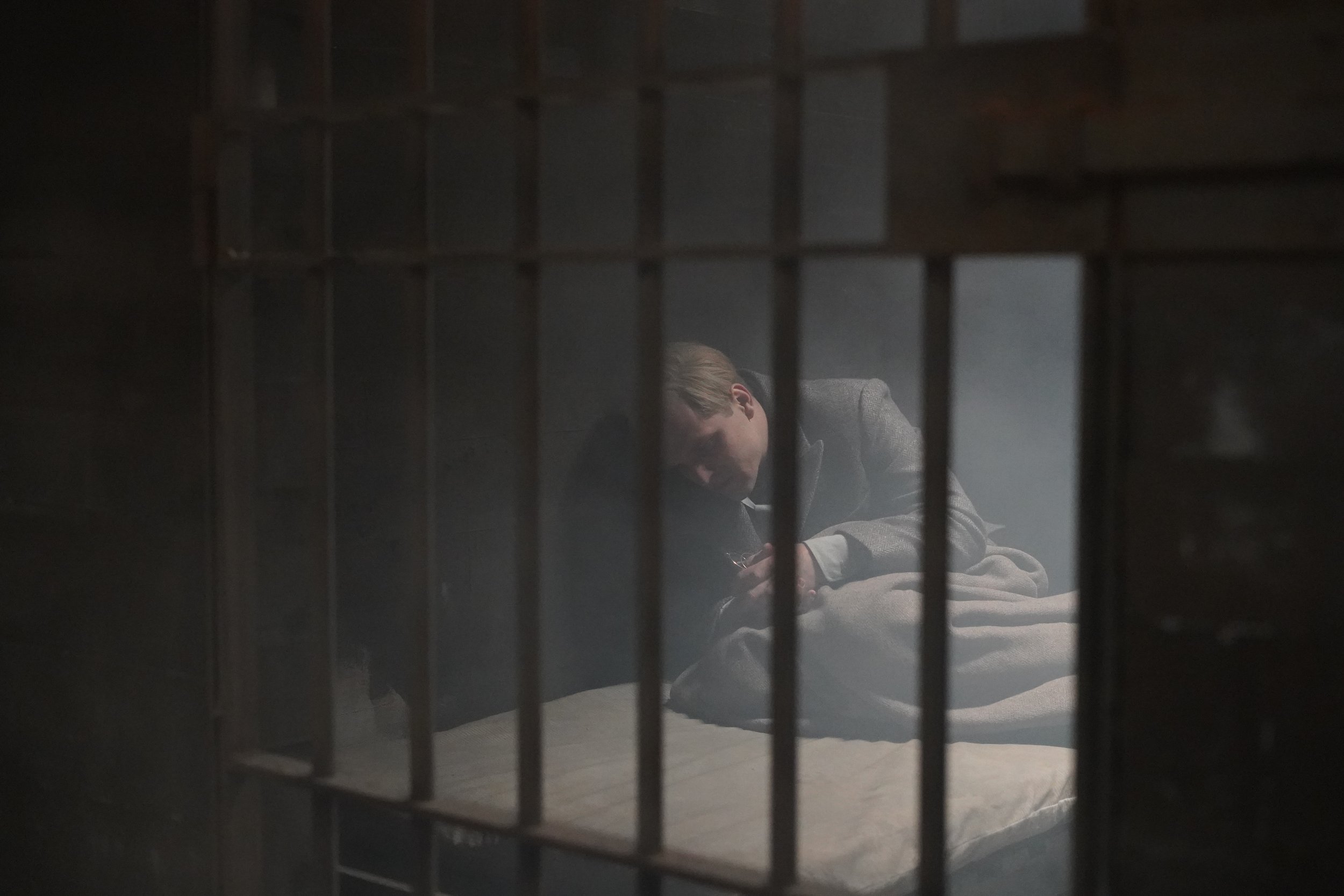Bonhoeffer
One of the unspoken evils of the Nazi regime was the way it worked arm and arm with major organized religion (or at the least, with little to no resistance from same) towards its horrors. So much is made of its totalitarianism and related evils that it’s given an unforced pass for how supremely it corrupted religion along with every other organ of society. By the same token it is also ignores how religious figures of the time organized resistance to Nazism, not through the active guerilla tactics of the France or other occupied countries, but through following the letters of Christian teacher that many of the highest levels of the church conveniently forgot about when the chips were down.
Dietrich Bonhoeffer was at the forefront of that resistance. A thoughtful and concerned theologian who disagreed with his superiors even in the early days of his scholarly life, he found much more specific disagreements with them when the Nazi’s rose to power and the people he had spent his life talking about God with suddenly began talking about the Fuhrer (at worst) or burying their heads in the sand hoping the storm would pass (at best). Recognizing the requirement of his beliefs to do something, and the same requirement limiting what ‘something’ could be, Bonhoeffer quickly and vocally began preaching resistance to Nazi ideals and actions and pushing his colleagues to do the same through stating that the Church did need to be involved in the actions of the world particularly when they turned to evil. Eventually those beliefs lead to actions and imprisonment and the branding of Bonhoeffer as an enemy of the state. Refusing to give in, even after years in a concentration camp and looking directly upon the murderous horror of the Nazis, Bonhoeffer lives on now for not only his actions but his statements about what real religious belief requires of an individual within the living world.
Writer-director Todd Komarnicki (Sully) is less interested with the purely ecumenical nature of the real Bonhoeffer’s thought than he is with the man’s actions within the Abwehr, the German resistance movement. A public figure who could move between nations early in Hitler’s reign and even during some years of the war – under the notion that it was better to have him out of the country than at home turning citizens against the regime – Bonhoeffer quickly took on a second role couriering information from the Abwehr to Allied nations and even between some cells of the resistance itself.
It’s undoubtedly the most dynamic period of his life and Komarnicki approaches it with a slick and studied studio presentation reminiscent of pre-war Hollywood’s real-time warnings on Hitler. Jonas Dassler is not Jimmy Stewart and this is not The Mortal Storm but the line of descent is there. In the process, for as much time as it spends on Bonhoeffer’s early life and studies, they feel frequently disconnected from his war activities rather than informing and directing them. The gentle theologizing of Komarnicki’s script for The Professor and the Madman is sorely missed in the tangle of Bonhoeffer’s real thought and his spiced-up activities during the war. Without that strong connection, the interiority of the man himself can only be guessed at and the connections must be inferred if not outright created by the viewer in a vacuum from the film.
That being said, everyone is clear on the end result and marches there directly with purpose and skill, abetted by gorgeous photography from John Mathieson (Gladiator II) and a steady hand from Komarnicki. Dassler himself encompasses Bonhoeffer’s firm belief and with a reality that doesn’t fall to reverence (but easily could have), creating something real within what is frequently a more produced play.
It misses the moment of interiority which Malick captured so well covering similar ground for A Hidden Life, but that doesn’t mean there is nothing of worth here. Give up on the idea of spies or overwrought war film and grab onto the real words somewhat hidden within and Bonhoeffer has its own worthwhile truths to share.
6.5 out of 10
Starring Jonas Dassler, August Diehl, David Jonsson, Flula Borg and Clarke Peters. Directed by Todd Komarnicki.





